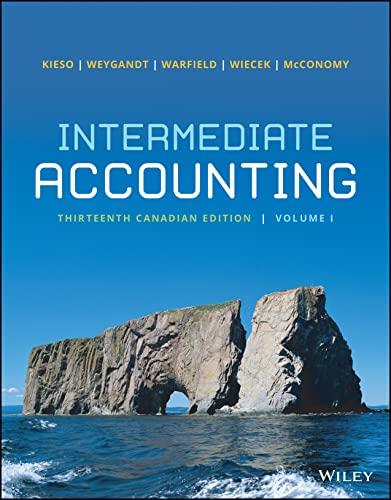Answered step by step
Verified Expert Solution
Question
1 Approved Answer
i need urngent answer Siegel Corporation manufactures a product available in both a deluxe and a regular model. The company has made the regular model




i need urngent answer
Siegel Corporation manufactures a product available in both a deluxe and a regular model. The company has made the regular model for years, the deluxe model was introduced several years ago to capture a new segment of the market. Since the introduction of the deluxe model, the company's profits have steadily declined, and management has become concerned about the accuracy of its costing system. Sales of the deluxe model have been increasing rapidly. Overhead is applied to products on the basis of direct labour-hours. At the beginning of the current year, management estimated that $2,041,000 in overhead costs would be incurred and the company would produce and sell 5,000 units of the deluxe model and 32,000 units of the regular model. The deluxe model requires 2.5 hours of direct labour time per unit, and the regular model requires 1.2 hours. Materials and labour costs follow: Direct materials cost per unit Direct labour cost per hour Deluxe $125 20 Regular $85 12 Required: 1. Compute the predetermined overhead rate using direct labour-hours as the basis for allocating overhead costs to products. Compute the unit product cost for one unit of each model. (Do not round intermediate calculations. Round your answers to 2 decimal places.) Saved Required: 1. Compute the predetermined overhead rate using direct labour-hours as the basis for allocating overhead costs to products. Compute the unit product cost for one unit of each model. (Do not round intermediate calculations. Round your answers to 2 decimal places.) per DLH Predetermined overhead rate Unit product cost of Deluxe Unit product cost of Regular 2. An intern suggested that the company use activity-based costing to cost its products. A team was formed to investigate this idea, and it came back with the recommendation that four activity cost pools be used. These cost pools and their associated activities follow: Deluxe Activity Cost Pool and Activity Measure Purchase orders (number of orders) Rework requests (number of requests) Product testing (number of tests) Machine related (machine-hours) Estimated Overhead Cost $ 189,000 252,000 350,000 1,250,000 $2,041,000 1,100 400 Activity Regular 1,600 806 12 500 30,000 Total 2,700 1,200 17500 50,000 5.000 20.000 Compute the activity rate (i.e., predetermined overhead rate) for each of the activity cost pools. Activity Rate Activity Cost Pool Purchase orders per order per request Rework requests Product testing per test Machine related per MH 3. Assume that actual activity is as expected for the year. Using activity-based costing, do the following: a. Determine the total amount of overhead that would be applied to each model for the year (Do not round intermediate calculations and round your final answers to nearest whole dollar amount.) Deluxe Regular Total overhead cost b. Compute the unit product cost for one unit of each model. (Do not round intermediate calculations and round your answers to 2 decimal places.) Deluxe Regular Unit product costStep by Step Solution
There are 3 Steps involved in it
Step: 1

Get Instant Access to Expert-Tailored Solutions
See step-by-step solutions with expert insights and AI powered tools for academic success
Step: 2

Step: 3

Ace Your Homework with AI
Get the answers you need in no time with our AI-driven, step-by-step assistance
Get Started


